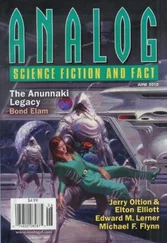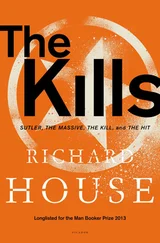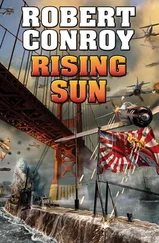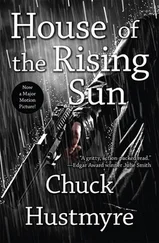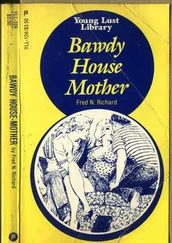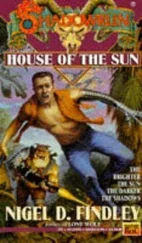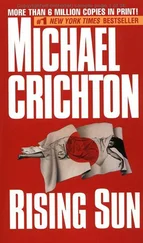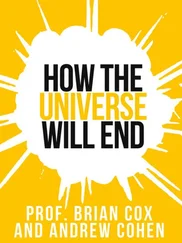Thomas smiles like he knows something I don’t. I hate that fucking look. Only a person who thinks he’s better than you smiles like that.
“If you really have so much power, why not fix all this shit? Put the world back to the way it was?”
“What makes you think it’s me who keeps people away from the cabin?” he asks. “How do you know it isn’t you?”
I blink. This is something I hadn’t considered.
“In my first film,” Thomas says, “the main character, who was me, always managed to avoid danger when it grew too close. He never got a speeding ticket. He never showed up on security cameras. Since the whole film was told from his point of view, the story wouldn’t work if he got into impossible trouble. Plus, I didn’t want those things to happen to me.”
“Makes sense.”
“An ensemble, omniscient piece leaves room for characters to die or otherwise meet their end. A first-person story only works when the protagonist makes it to the last scene.”
“Enough with the artsy-fartsy philosophical crap. Just tell me if you wrote all this.”
“I’m not completely sure, but I think this might be your story.”
“That sounds like a politician’s answer to me. And I don’t like politicians.”
“Let me put it another way: Since the pulse, have you run into any barrier that couldn’t be overcome?”
It’s a fair question. I rewind my memory, back to the carnage at the warehouse, to the journey to get there, back to the miraculous appearance of Ed’s pickup, to the evening when I killed not just Mitch but his lover, back to when I convinced Jimmy we should look for a warehouse in the first place, back to Keri’s loft, where I drank lemon vodka and ravaged her like a porn star might, back all the way to that night at Cinnamon when Jimmy paid twenty thousand dollars for a night of debauchery most men will never know… after reviewing all this, I realize I’ve walked through this fantastical story almost unimpeded. Which is ironic, since before the pulse I hadn’t caught a single break my entire life.
“You’re saying you wrote all this for me?”
“I don’t know,” Thomas says. “I don’t think we’ll ever know.”
“But if what you just said is true, I should be able to do anything I want. Like, I could kill you right now and everything would be A-OK.”
“Maybe, but even a first-person story ends eventually. And if the writer is any good, the ending you receive is the one you deserve.”
“Even after I murdered a hundred people on the lawn of the DC?”
“If the writer is any good,” Thomas says again.
That fucking smile is still on his face, that look of arrogance. He takes a bite of mashed potatoes and watches me carefully. He drinks a swallow of lemonade. Mine is mostly gone, but I pick it up and suck down what’s left.
Except now I notice it doesn’t taste right. It’s too bitter. It smells like almonds.
“What the fuck did you put in my drink?”
“It’s crazy what you can find in a cabin like this,” he says. “Fishing rods. Dry goods. Propane. It’s almost unbelievable.”
As I wait for him to go on, a strange sensation threads into my arms and legs, as if the muscles in them have turned to stone. I look at my hands. They don’t feel like mine. My fingers won’t move. My arms and legs and my whole body suddenly gasps for air.
“Even sodium cyanide,” Thomas says.
“But how did you—”
A thick tube of molten goo rises in my throat. I can’t speak. My body begins to shudder violently. My insides seem to crumple, as if my entire being has become a human windpipe being choked. I can’t breathe, I can’t think, I can’t kill him.
I can’t fucking BREATHE…
“You murdered a bunch of hungry kids and parents on the lawn of the DC, you sick bastard. The world has had enough of your kind making the rest of us suffer.”
So maybe Thomas isn’t a good writer after all. Maybe he’s a talentless hack who only ever writes his deepest desires hoping to make them come true.
“And even if it’s not your fault, even if you can’t help the way you are, we certainly shouldn’t give you the tools to hurt anyone else.”
Or maybe this is the ending I truly deserve. Really, at this point, the decision is yours.
Whichever way you lean, it won’t change the outcome for me. I’ve reached the end of the road, the last step, the most electrifying moment of my miserable life.
* * *
Every day the sun rose and the supernova rose and Thomas ate rabbits and birds and fish. He sat on the back porch and watched the sun set. He watched the supernova set. There was a row of bookshelves between the kitchen and the den, and one afternoon he took down a novel and tried to read it. The first character in the story was a fellow named Tawakoni Jim, which made him chuckle, since Tawakoni was the name of the lake keeping him alive. But when, in the first chapter, a town was obliterated by a giant tornado, Thomas returned the book to its shelf. He saw no point in reading about death when death was no longer an abstract, faraway concept but a reality he lived with every day.
Instead, to pass the time, he took naps in the living room or maybe the back porch. Sometimes he dreamed half his body was standing on a rocky shoreline, while the rest of him stood on a dinghy tied to the shore by a rope. Invariably he would take out a knife and cut the rope, which left part of him floating away on a small and unstable watercraft while the rest of him watched from the solid mass of dry land. The floating part of him knew the dinghy could capsize at any moment, so he reached for the shore, hoping to be saved. But the version of him on stable ground was afraid to help. Was afraid of drowning in the water. So Thomas was left with a choice: risk safety to bring the halves together again, or stand there and watch as he was ripped apart forever.
Had Aiden really shown up here? Had Thomas murdered him with cyanide? Had he buried the body in a shallow grave behind the cabin? The answer was there if he wanted it—all he had to do was grab the shovel and dig. But Thomas couldn’t decide which discovery would be worse: a rotting corpse or smooth, unbroken ground.
The details of Aiden’s surprise visit were still fresh in his mind. It didn’t seem like an incident he would have imagined. But Thomas was desperately lonely, hungry all the time, and couldn’t ignore the possibility that he had hallucinated the entire episode. For that matter he could still be dreaming. Maybe he’d run out of food weeks ago and was lying in bed while his body consumed itself, suffering through the last, surreal moments of this incomprehensible life.
He thought about his mother. He thought about his high school crush on Natalie. Had he liked Natalie for who she was, or had he invented a version of her to counterbalance his mother’s anger? Had it been the same with Sophia? Was Skylar a real person or manifestation of biological need?
Probably it didn’t matter. If you could accept the past, if you could recognize the person you had become, you could arm yourself with tools to make new and better decisions now and in the future. Whatever had driven his mother’s anger, whether she had created those circumstances or inherited them, Thomas was not obligated to perpetuate the cycle.
Today, he could decide to remain in this unchanging daily grind, this lonely march toward death. He could try to put the world back to the way it was. Or he could boldly point his life in a completely new direction.
One day when both suns had set, when he went inside to lie down, Thomas noticed in the shadows of flickering candlelight a black shape sitting atop the row of bookshelves. At first he thought it was a small safe, or a toolbox, but when he used a stepladder to get a better look, he realized the shape was not a safe or a box at all.
Читать дальше

